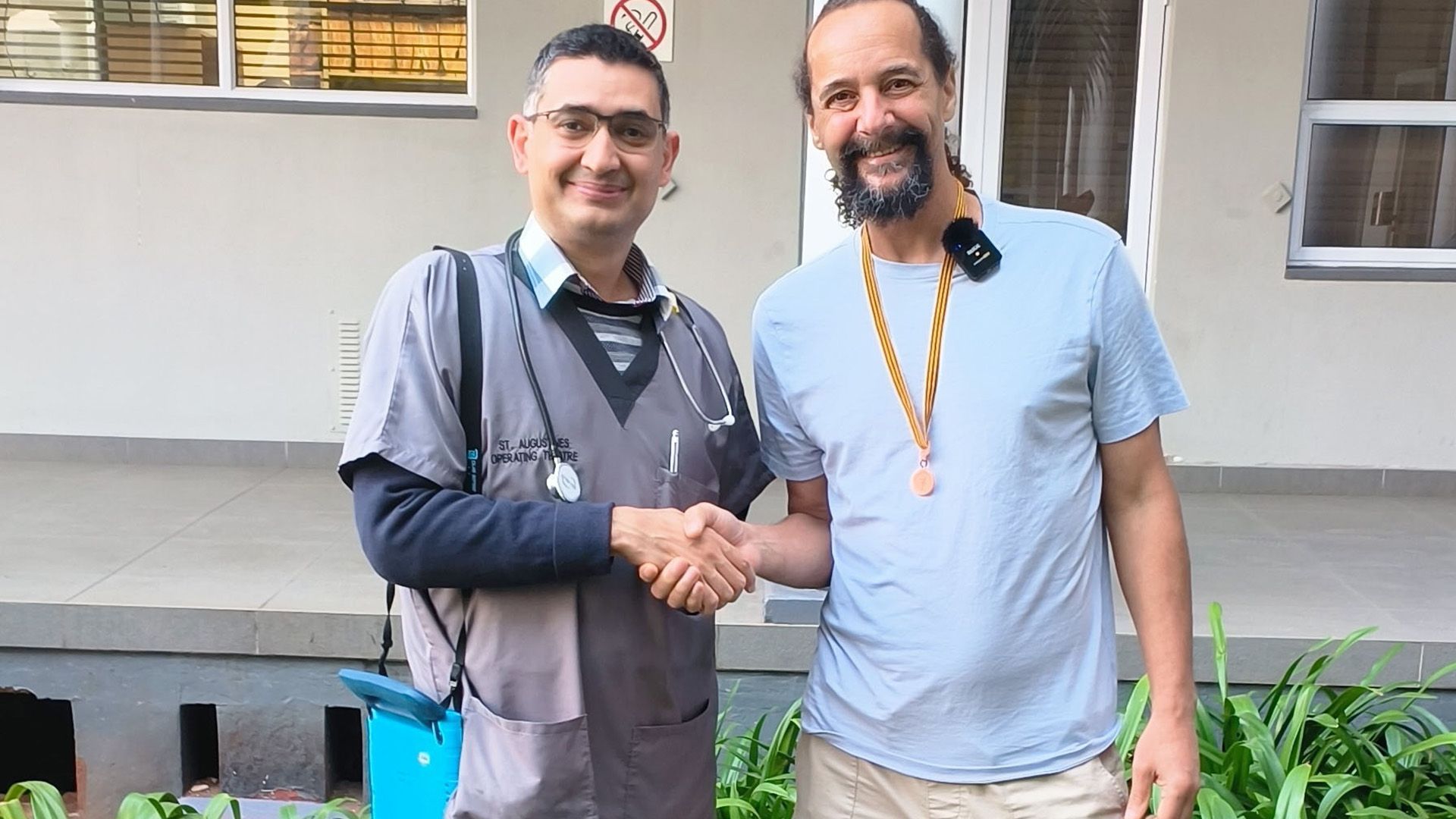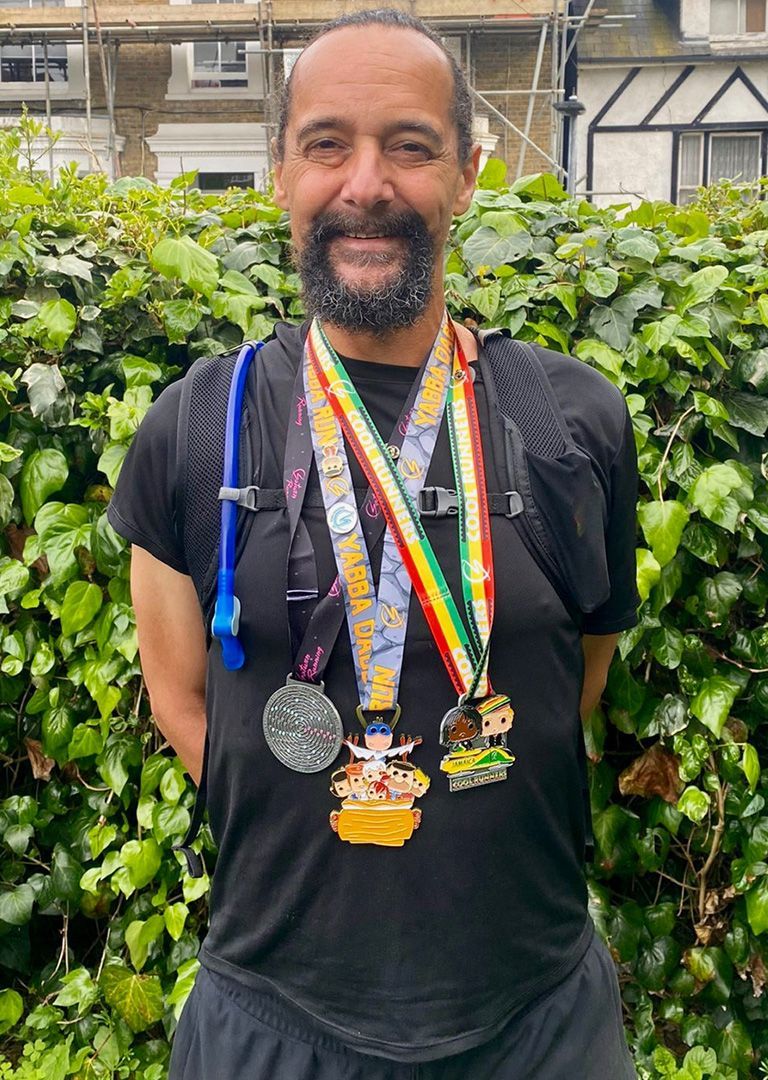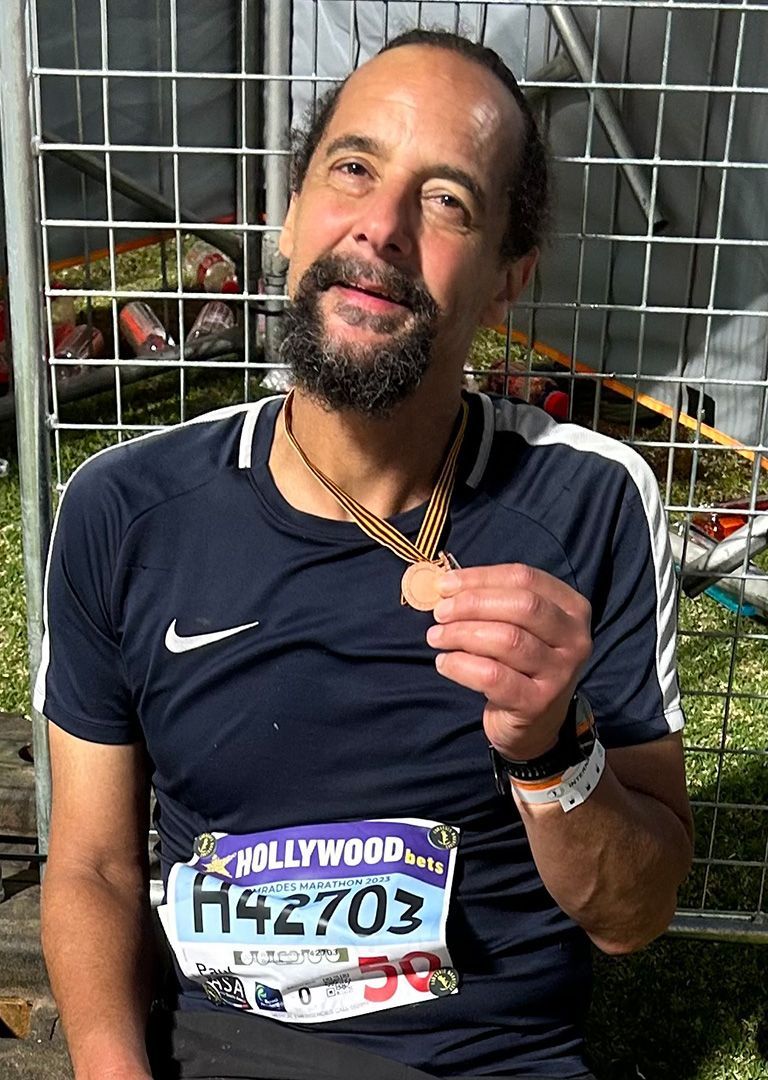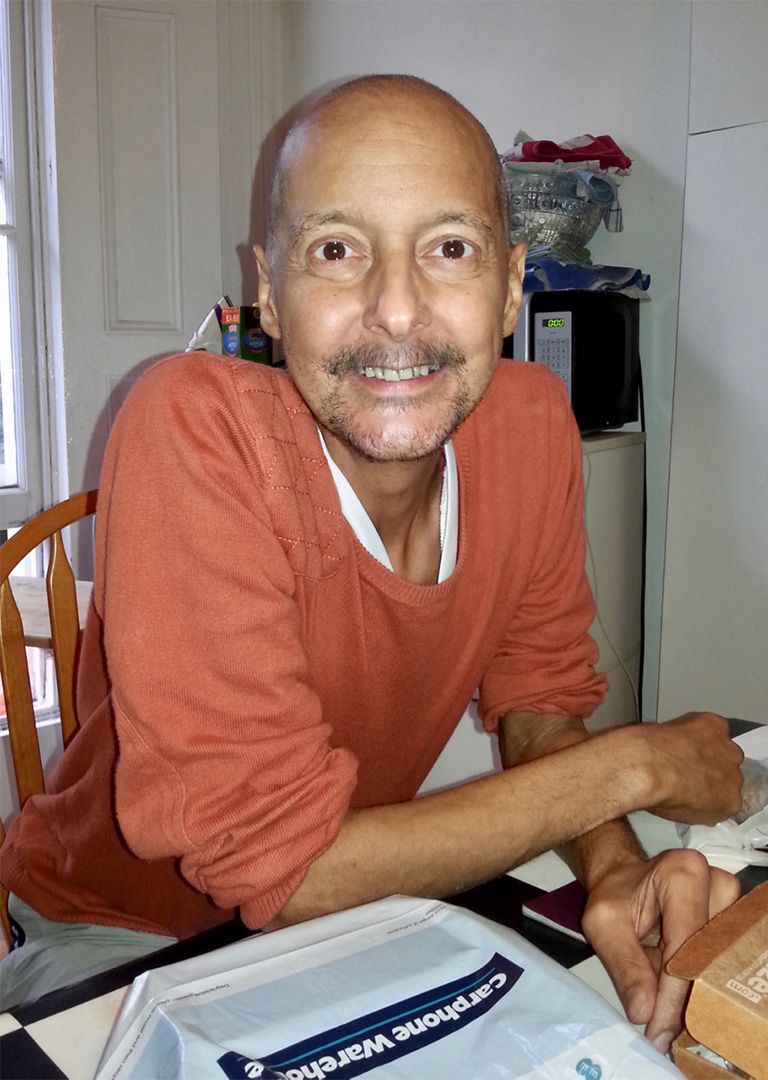Cancer survivor completes Comrades for a good cause
Specialist physician Dr Prashant Parag and Paul Hussey
Raising funds for a lifesaving dialysis machine
When Paul Hussey was diagnosed with kidney failure and stage 4b lymphoma, few could have believed that nine years later he would return to South Africa and complete the Comrades Marathon.
“At that time in May 2014, I was only 45 years old but was little more than a skeleton with skin. With cachexia, a condition that causes extreme weight loss and muscle wasting, my face was gaunt, drawn and discoloured. Cancer was absolutely ravaging me, and I made a promise to myself, the universe, God, and humanity that one day I will return and run the Comrades Marathon,” he says.
On 11 June this year, at the age of 54, Paul fulfilled his dream of finishing the world’s oldest and largest ultramarathon in 11 hours and 48 minutes. He also embarked on a crowdfunding campaign to donate a much-needed dialysis machine to a public hospital in Durban.
“Regular running has been a massive part of my recovery and return to health and fitness, as well as learning to play the flute. I spent a lot of time in my hospital bed thinking of the Comrades and, as soon as I could, I returned to running, always with one goal in mind: the Comrades, The Ultimate Human Race.”
Specialist physician Dr Prashant Parag, who practises at Netcare St Augustine’s Hospital was Paul’s treating doctor in May 2014. “Overcoming such serious health conditions to complete the Comrades is an exceptional story of the triumph of the human spirit, and we congratulate him on this incredible achievement,” he says.
“Paul has had a transformative journey from kidney failure to malignancy and cancer treatment, to make a powerful comeback in the most inspiring way. Today he is a healthy athlete who is raising funds to help others in need of the dialysis that helped him on his journey to health.”
Paul moved to South Africa from the United Kingdom in 2014, but his health failed soon after and he was admitted to Addington Hospital in Durban. When his kidneys failed, Paul was transferred to the intensive care unit at Netcare St Augustine’s Hospital for the specialised kind of dialysis needed to improve his kidney function.
“While he was with us at Netcare St Augustine’s Hospital, a biopsy of a gland in his neck revealed Paul had non-Hodgkin’s lymphoma, a cancer of the blood. This is difficult news for anyone to hear, but he was relieved to have a diagnosis. Paul made the brave decision to go back to England for cancer treatment, which highlights his determination although he had a long battle ahead of him,” Dr Parag says.
When Paul’s condition was stable enough, his mother accompanied him on the flight back to England, which happened to be the day after the Comrades Marathon 2014. “I was in a wheelchair at the airport travelling back to the UK for medical treatment surrounded by hundreds of athletes all wearing their Comrades medals, looking super fit, and excited with that amazing sense of achievement having run 89kms in the hot African sun. In that fateful moment I could not have felt further away from where they were,” Paul recalls.
Today, Paul is among the distinguished group of runners recorded in the celebrated annals of Comrades finishers, and he has never forgotten the two hospitals in Durban that assisted him in his time of need. He recently returned to visit Netcare St Augustine’s Hospital and Dr Parag to share his message of hope and appreciation for the care he received all those years ago.
“In 2014 I was so ill, I was bedridden and I could barely stand unaided. Through the window of my hospital room, I caught a glimpse of the tranquil garden and imagined myself sitting in it, healthy and without a care in the world. For me to go back there, sit in that garden and play my flute felt like I was completing a circle and honouring my past sick self,” Paul says.
“For people who are going through cancer diagnosis or treatment, my message would be: don’t give up, no matter what, don’t give up because you never truly know what lies ahead. It helps to hold onto a goal and a vision of yourself healthy in the future.”
“With the resilience of the human spirit, Paul has demonstrated the profound impact compassionate care and comprehensive healthcare, including the entire treating team, nursing and support staff, can have on a person’s life. Paul has taken this a step further through his fundraising initiative in an attempt to touch the lives of many more South Africans,” Dr Parag says.
Paul is collecting funds to donate a portable reverse osmosis dialysis machine and other essentials to Addington Hospital, and Netcare’s corporate social investment arm, the Netcare Foundation is donating a significant contribution. Through their CSI fundraising drive, the staff at the Comrades Marathon Association also decided to come on board and match the donation, resulting in Paul now having sufficient funds to purchase the reverse osmosis dialysis machine.
“Netcare helped me a lot when I was so ill, and I am so grateful that they are making this donation to touch the lives of others suffering kidney failure. I am so grateful to them, the Comrades Marathon Association and all the donors so far. The dialysis machine will make a great lasting difference to people requiring this type of therapy at Addington Hospital,” Paul says.
If you would like to contribute to Paul Hussey’s ongoing fundraising initiative for Addington Hospital, please visit
https://www.justgiving.com/crowdfunding/paul-hussey-5?utm_term=xNB46Ed43.
















